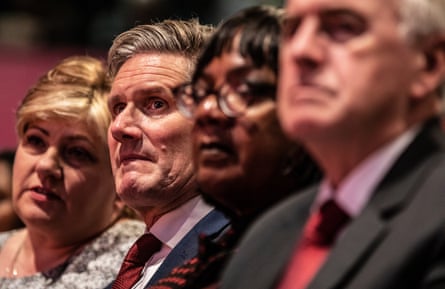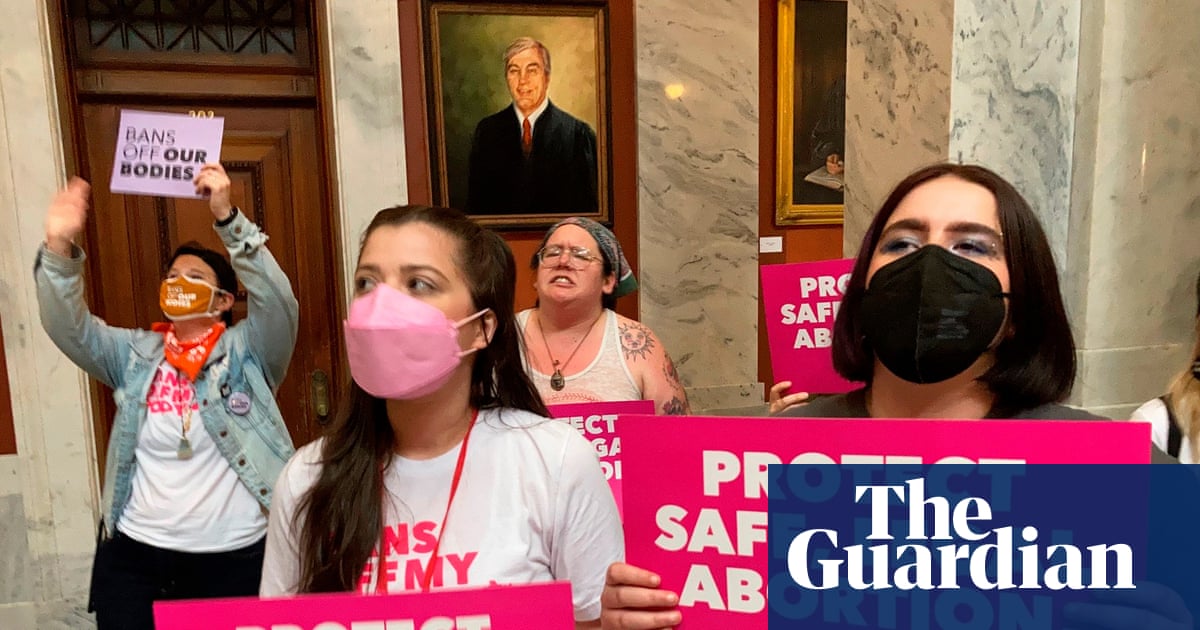Another day in Keir Starmer’s government, another day in the Whitehall and Westminster bubble, with uproar over the resignation of Paul Ovenden, one of the PM’s top aides. What did he do?
Ovenden, who served as the director of strategy in Downing Street, stepped down after admitting to discussing Britain’s first Black woman MP, Diane Abbott, now 71, in derogatory sexual terms with party colleagues in 2017. In one message, he described a “shag, marry, kill” game where he and two others had discussed Abbott and a colleague “using a strap-on” during sex and the prospect of “going down on” the MP.
And today, as yesterday, when the revelations surfaced, commentators from within the Westminster bubble are lamenting Ovenden’s loss to the government, with some appearing to dismiss the appalling messages and the backlash as a “factional hit job”. Poor old Paul Ovenden – and sod Abbott, then? It’s noteworthy, though perhaps predictable, that the political reaction is a circling of the Westminster wagons, and a general lack of regard for the Black person about whom the nasty comments were made.
And it speaks to something wider. The comments about Abbott, relayed and endorsed by Ovenden, are not just foul: they also reflect the way in which Black women are routinely dehumanised in this society, and the fact that when that happens, there is little protection. What’s even more striking about the row today is that remarks of this kind are new, not private and not inconsequential.
There were deeply offensive remarks about Abbott and other women in a leaked Labour report from five years ago, which exposed a toxic environment of bullying, racism and misogyny – yet instead of launching a cleanup, Labour pretty much brushed it all aside. Behaviour that would have been unacceptable in any other professional workplace was effectively normalised.
So when a spokesperson for Downing Street called the messages sent by Ovendon “appalling and unacceptable” in a statement to the press, it just didn’t wash. Labour’s leadership have long known this kind of thing is a problem. In marked contrast, Abbott has been suspended from the party twice over comments about race, having been deemed to be racist despite the MP’s track record of supporting minoritised groups, including Jewish communities, while Labour leaders claim to be taking a hard line against alleged discrimination.

When Martin Forde KC delivered an independent review in 2022, one the party itself commissioned, he confirmed the scale of Labour’s culture problem and offered a roadmap for reform. Rather than taking his findings seriously, the party dismissed them – and, as I exclusively reported, even tried to gag Forde when he spoke out.
It suits a beleaguered No 10 and its supporters to characterise this as factional infighting, but that simple explanation doesn’t hold up to scrutiny. What has emerged this week, coupled with the Forde report, shows a pattern of toxicity that transcends factional battles. It points to something deeper: a culture in which misogyny and misogynoir, or hostility towards Black women, could flourish unchecked.
Ovenden’s resignation comes at a febrile moment for Labour, just days after Peter Mandelson was removed as ambassador to the US and Angela Rayner stepped down as deputy prime minister. In Mandelson’s case, questions over his links to Jeffrey Epstein were already known, but action only followed once they became public. Therein lies a pattern. But this whole furore cannot be just another episode in a turbulent fortnight. It must be a test of whether Labour will finally confront racism in its own ranks or treat it as yet another crisis to be managed away.
Earlier this year, the party launched its Race Equality Engagement group (REEG), led by Doreen Lawrence, to help “ethnic minority communities, stakeholders and delivery partners to seize opportunities and remove barriers to racial equality across the UK and to hear people’s lived experiences.” Yet it will need to prove that equality is being prioritised in its own ranks. The scandal surrounding Ovenden’s resignation isn’t just about him or the fact that he’s gone – but that the party’s higher-ups knew about these kinds of abuses and looked the other way.
after newsletter promotion
There is a critical question here: if Labour cannot protect the country’s first Black woman MP from racist and sexist denigration within its own ranks, how seriously can it claim to champion equality outside them?
Another day in Labour’s bubble, and there will be more bad days. I’ve seen unredacted internal material. What’s already out is damning enough – but it is not the full story. Senior figures cannot plausibly claim they were unaware of the nature of this kind of misbehaviour.
Root-and-branch reform isn’t now optional; it’s the only way Labour can show that it values accountability over expediency, and that the abuse endured by Abbott and others will not be brushed aside again. The party is haemorrhaging supporters, not least from minority communities. If it cares about that, time is of the essence.
-
Nadine White is a journalist, film-maker and the UK’s first race correspondent
-
Do you have an opinion on the issues raised in this article? If you would like to submit a response of up to 300 words by email to be considered for publication in our letters section, please click here.

 3 months ago
112
3 months ago
112

















































